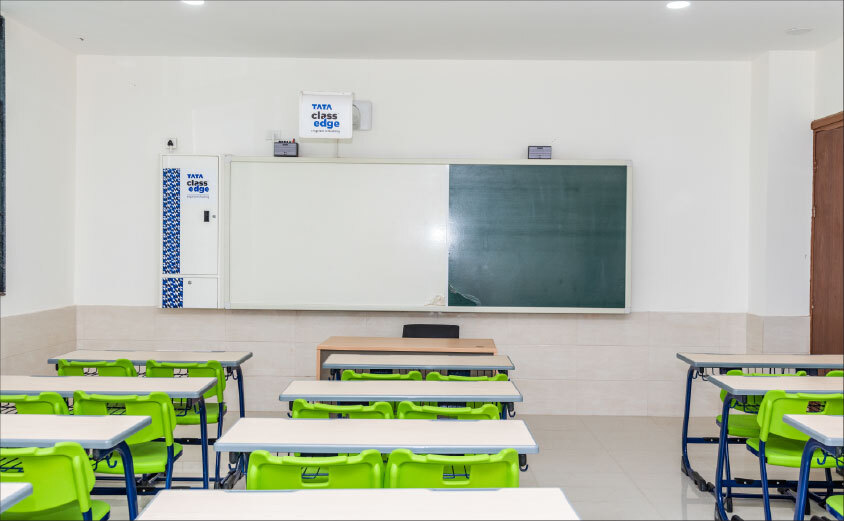How the Netherlands is Leading Europe in Smart Classroom Adoption Through AI, Cloud, and STEM Integration

The Netherlands has established itself as a leader in Europe regarding the adoption of smart classroom technologies, fueled by supportive government policies, robust digital infrastructure, and a commitment to innovation in education. The smart classroom market in the Netherlands is experiencing significant growth as schools, universities, and vocational training institutions increasingly incorporate advanced technologies to elevate the teaching and learning experience. A key trend driving this market is the nationwide emphasis on digital literacy and STEM education. With over 52% of schools already implementing smart classroom solutions, educational authorities are focused on equipping students with the necessary skills for a technology-driven future. Initiatives from the Dutch Ministry of Education, Culture, and Science have been instrumental in promoting this adoption by providing grants and support programs for digital transformation in educational settings, significantly boosting the smart classroom market.
Netherlands smart classroom market was valued at USD 3,011 million in 2023 and is estimated to reach a value of USD 18,714 million by 2030 with a CAGR of 23.09%.
In the hardware segment, interactive whiteboards, projectors, and digital displays are prevalent, allowing educators to present information in visually engaging ways while promoting interactive student participation. Current estimates indicate that interactive whiteboards constitute nearly 27% of the hardware segment, underscoring their essential role in contemporary classrooms. Additionally, cloud-based learning management systems (LMS) and classroom management software are gaining traction, enabling institutions to streamline curriculum delivery, monitor student performance, and offer personalized learning experiences. Schools in the Netherlands are also trialing AI-driven tools that tailor to individual learning paces, responding to a growing demand for analytics and educational software platforms. These advancements assist educators in identifying learning gaps and improving overall educational outcomes, positioning the Netherlands as a significant player in smart education within Europe.
Another notable trend within the Dutch smart classroom market is the emphasis on teacher training and professional development. Educational institutions are investing in programs that ensure teachers are proficient in utilizing new technologies effectively. Training initiatives typically include interactive workshops, virtual simulations, and peer-to-peer learning, equipping educators to maximize the use of digital tools. Additionally, there is a growing focus on hybrid learning environments that integrate in-person and remote instruction an evolution accelerated by the COVID-19 pandemic. This hybrid model highlights the necessity for reliable network infrastructure and cloud-based platforms, both of which are critical components driving the smart classroom market in the Netherlands. Reports show that approximately 70% of schools have enhanced internet connectivity and adopted cloud-based educational platforms, facilitating the seamless integration of digital tools.
The considerations of cybersecurity and data privacy have also risen to prominence within the smart classroom market. With the widespread implementation of cloud-based systems and online learning platforms, educational institutions are enforcing stringent security protocols to comply with GDPR regulations and safeguard sensitive student data. Technology providers are delivering secure networks, encryption technologies, and access controls to ensure the protection of educational information. Additionally, collaborations between technology providers and educational institutions are emerging as a strategy to enhance both hardware deployment and software integration. Companies like BenQ, Indota, and Shape Robotics are actively engaged in providing customized solutions that align with local curriculum requirements and comply with national data regulations, further bolstering the growth of the smart classroom market in the Netherlands.
Investment in EdTech startups represents another key characteristic of this market. The Netherlands hosts a dynamic startup ecosystem centered around AI-based learning tools, virtual labs, and gamified educational software. Venture capital funding and government-backed initiatives are empowering these startups to scale quickly and spur innovation in teaching methodologies and digital content delivery. The integration of these technologies in schools ensures that students not only acquire theoretical knowledge but also develop practical digital skills essential for their future careers. Additionally, there is a strong emphasis on inclusive education through accessible technology, such as adaptive learning tools for students with disabilities, setting the Netherlands smart classroom market apart from other European markets.
Lastly, the smart classroom market in the Netherlands is marked by a commitment to sustainability and green initiatives. Educational institutions are increasingly selecting energy-efficient devices, cloud-based systems that lessen the need for physical materials, and digital textbooks that reduce paper consumption. This strategy aligns with national sustainability goals and reflects a broader European trend towards environmentally responsible education. The synergy of government support, dynamic innovations, and a focus on inclusivity and sustainability is shaping the future of the smart classroom landscape in the Netherlands.